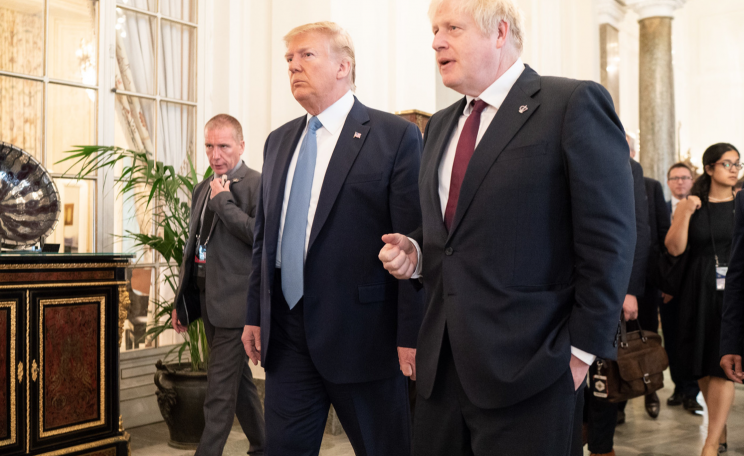These treaties not only failed to attract additional investment, they also diverted millions of dollars of government money to fighting costly lawsuits. We hope other governments will learn from Ecuador's example.
Ecuador has struck another blow against the power of big business, ripping up 16 trade deals with countries including the US and UK.
President Correa cited the notorious 'corporate court' system as the key reason for ending the deals.
Officially known as Investor State Dispute Settlement, these 'corporate courts' allow foreign investors to sue governments for taking action they believe to be unfair.
Such courts have been used to challenge government's attempts to prohibit smoking, raise minimum wages and renationalise parts of the health system. And they do so in secret, and without the right of the country concerned to appeal.
This blatantly undemocratic system was at the heart of the protests around TTIP, the US-EU trade deal, which was defeated last year following opposition from millions of European citizens and hundreds of local authorities.
President Correa of Ecuador has railed against the damage which international finance and trade has done to his country throughout his tenure. Early in his first term he set up a debt audit, which declared large portions of Ecuador's debt illegitimate and saw his government wiping out billions of dollars of payments. With Correa's term due to end this week, he seems determined to go out fighting.
'Trade deals' cost Ecuador $21 billion, but failed to attract investment
Ecuador's latest move is the result of a second commission, created in 2013, to look into the damage and benefits brought to Ecuador by trade and investment deals.
The commission found that so-called bilateral investment deals had failed in their central purpose of encouraging foreign investment into the country. In fact, most of Ecuador's investment was from countries which don't have such deals.
What the deals had achieved was to undermine Ecuador's development, preventing the state from fulfilling its constitutional duty to regulate investment so that it works in the interest of Ecuador's people. Again, this mirrors concerns around TTIP, namely that such deals inhibit governments regulating in the public interest, in case their actions are judged ‘unfair' to big business.
Ecuador has faced 26 corporate court cases, and lost the majority, owing a whopping total of $21 billion dollars. One infamous case, brought by Chevron, has been used to try to evade justice on the part of the oil company.
When Texaco, Chevron's predecessor company, dug for oil in Ecuador, it dumped billions of gallons of toxic water into the Amazon, poisoning the land of thousands of Amazon residents. It is one of the world's biggest environmental disasters.
But Chevron claimed the government's attempt to seek compensation was unfair, and succeeded in getting a 'corporate court' - consisting as usual of three arbitrators - to overturn the ruling.
'We hope other governments will learn from Ecuador's example'
These treaties not only failed to attract additional investment, they also diverted millions of dollars of government money to fighting costly lawsuits. We hope other governments will learn from Ecuador's example.
This month, Correa signed decrees terminating 16 trade and investment deals, including with the US, Canada, China and the UK.
Importantly, they also agreed to develop specific rules on how the state can regulate investment going forward - something every country needs to do if investment can work for the majority of its citizens. The president of the audit commission Cecilia Olivet commented:
"Ecuador has taken a sound decision by terminating its investment protection agreements. The auditing process revealed that these treaties not only failed to attract additional investment or advance the country's development plan, they also diverted millions of dollars of government money to fighting costly lawsuits. We hope other governments will learn from Ecuador's example."
Ecuador follows the lead of South Africa and Indonesia who are also in the process of terminating corporate court deals. And last week the European Court of Justice ruled that while trade deals in general don't require a lengthy process of ratification involving all European member states, the corporate court system does.
This only adds to the headaches of the European Commission, desperately trying to reformulate its trade policy while maintaining some sort of corporate court body. The EU is scrabbling round for an alternative which preserves the essence of the corporate court system, while introducing a more formal process - with transparency, appeals and 'proper' judges.
But with even the Financial Times running editorials calling for corporate courts to be removed from trade deals, could this system finally be on its last legs?
Nick Dearden is the director of Global Justice Now since 2013. Previously he has worked for War on Want, Amnesty International and Jubilee Debt Campaign.
TTIP: Transatlantic Trade & Investment Agreement
CETA: Comprehensive Economic & Trade Agreement
This article was originally published here by Global Justice Now.







